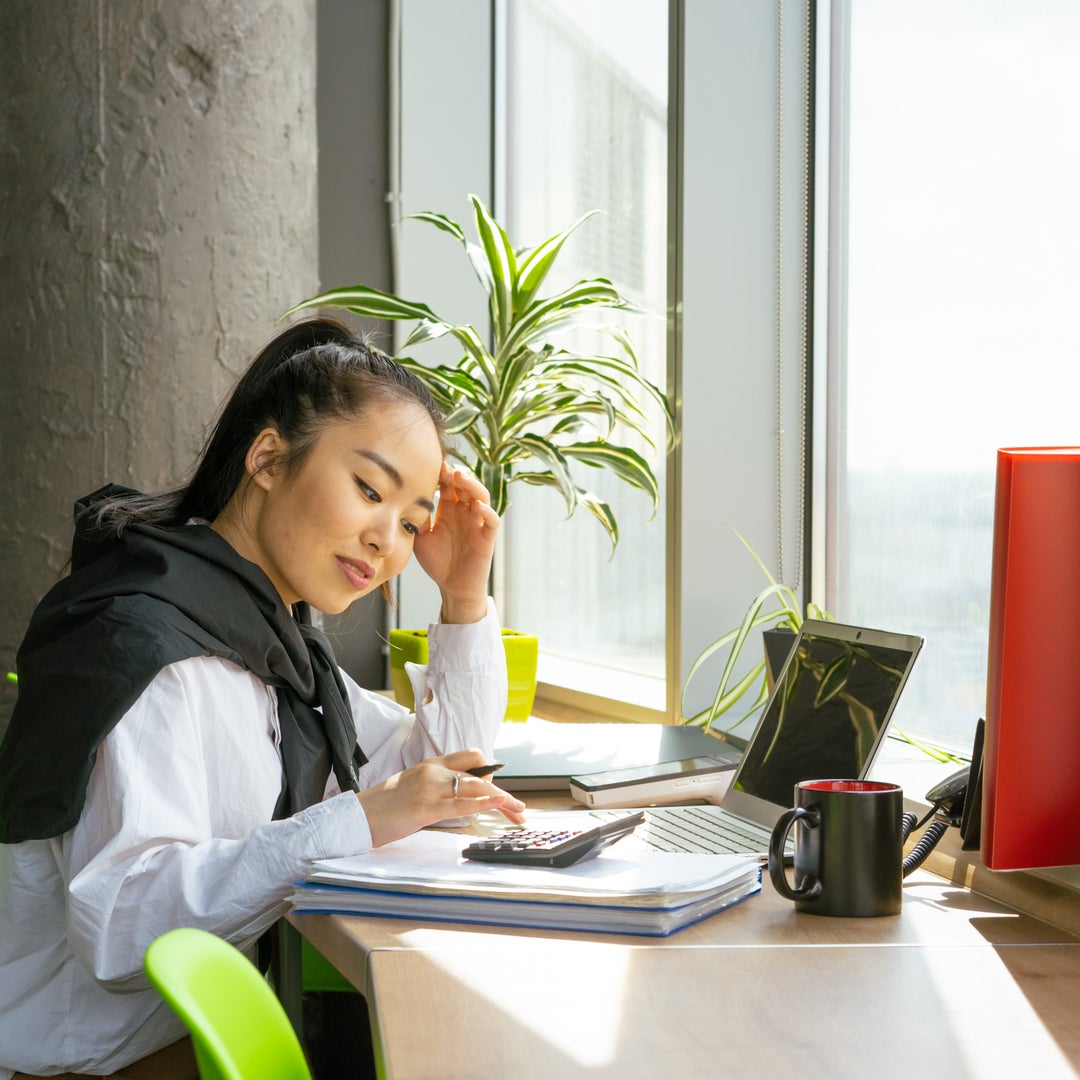22 Side Hustle Ideas to Make More Money

What would you do with an extra $5,000 per year? According to researchers, that's the average amount people earn with side hustles. That’s enough to pay off a chunk of your student loans or credit card debt, build an emergency fund, or pay for that vacation you've been dreaming of for years.
Side hustles are types of work you do in your spare time to earn extra cash. While you may know about the most common side hustles, like completing online surveys or driving for rideshare companies, you may not be aware of all the opportunities out there. But there are hundreds of ways to make money outside of your day job, even opportunities to make money online — here are a few ideas to help spark some of your own.
22 Side Hustle Ideas
Whether you like working outdoors or prefer earning from your couch, there are side hustles for everyone. If you're looking for new business ideas, check out this list of 22 side hustles that can help you make more money:
1. Deliver groceries
If you don’t mind grocery shopping, you can make good money delivering groceries for services like Instacart or Shipt. Shoppers make money on each order they accept, plus tips, and you can work on your own schedule.
2. Clean homes
If you pride yourself on your cleaning abilities, you can earn extra cash by cleaning the homes of local families. You can find opportunities on Handy.
3. Referral programs
Inviting friends and family members to sign up for a service or product you use can be an easy way to earn a referral bonus. For example, every friend you invite to Acorns who signs up and makes their first investment can mean a $5 referral bonus that gets invested in your Acorns Invest portfolio. There’s no limit to how many friends you can invite, and best of all, your friends also get a $5 bonus investment, too. Plus, Acorns’ Limited Time Promo Referrals gives you a chance to earn even bigger bonus investment rewards up to $1,200. Learn more about Acorns referrals here. Terms & conditions apply.
4. Offer moving help
If you are strong and physically fit, a great side gig is providing labor to people that need help moving furniture or loading their stuff into a moving truck. You can find gigs in your area on Dolly.
5. Assemble furniture
If you are a champion at assembling furniture, you can find people who will pay you to take the challenge off their hands. To find gigs, check out TaskRabbit.
6. Wrap gifts
If you are a master gift wrapper and know how to create the perfect bow, another side hustle idea is wrapping gifts. The busiest time is near the winter holidays, but people often need help wrapping wedding and birthday gifts, too.
You might be able to find clients on NextDoor or other neighborhood hubs.
7. Remove junk
Homeowners often have large piles of yard debris or old furniture that their regular trash services won’t take. If you have a truck, you can make money by picking up neighbors’ junk and taking it to the local trash dump. You can sign up with Curb-It to find removal jobs in your area.
8. Care for pets
Animal lovers can make money by walking dogs and pet-sitting. Prices vary based on the number of pets you care for and the time spent. You can find pet-sitting jobs on Rover and Care.com.
9. Rent out your parking space
In some areas, your parking spaces can be valuable assets. If you have a garage, driveway, or designated parking space that you don’t use, you can rent out that space for cash on sites like Spacer and SpotHero.
How much you can make is dependent on your location and the type of space you have.
10. Write and edit
Businesses always need content for their websites, blogs, social media sites and newsletters. Since many companies don’t have the budget to hire full-time writers, they outsource a lot of content creation to freelance writers and editors.
While you can find clients by reaching out to businesses on your own, you can use Upwork, Freelancer.com, and Verblio to start earning money from writing.
11. Serve as a virtual assistant
A virtual assistant is an administrative professional that provides support to businesses or individuals from afar. You can do a variety of tasks, like managing social media accounts, scheduling appointments, and providing customer service.
You can find clients on your own, or you can go through services like Belay or Time Etc. to start making money.
12. Tutor
Tutoring, either in-person or online, could be a great side hustle for people that are experts in a particular subject. The best subjects to tutor include math and science, but helping students prepare for standardized tests like the SAT can also be an in-demand service. You can start tutoring through sites like Chegg.
13. Teach English
Learning English as a second language is increasingly in demand, making it a great side gig for native English speakers. Check out VIPKID or EF Education First if you’re just starting out.
14. Rent out storage space
If you have an extra closet, empty basement, or spare attic space, you can turn that unused space into cash by renting it out to locals that need a safe place to store their items. How much you can earn varies by location and the size of the space you have to offer. For example, in Philadelphia, a 10x10 foot storage space costs $150 a month on average. You can list your space for rent on Neighbor.com.
15. Sell handmade crafts
Whether you love to crochet or draw caricatures, you can sell your handmade crafts on sites like Facebook Marketplace or Etsy. How much you can make depends on what you’re selling and other factors, so it’s worth checking out the competition’s pricing before you get started.
16. Flip furniture
You can often score free or inexpensive furniture on Craigslist or at yard sales. If you have a knack for refinishing and restoring furniture, you can turn that skill into cash by flipping your finds online. Your profits will vary by piece.
17. Start a blog
If you love to write, starting a blog can be a great side gig. You can blog about any subject you want — for example, you could start a blog all about caring for iguanas, or about local sustainable gardens.
You can make money through advertising, affiliate marketing, and selling digital or physical products. You can get started through a site on Wordpress or Bluehost. Earnings vary, depending on your niche and how you monetize your work.
18. Sell your photos
If you love photography, turning your hobby into a side hustle could be a great way to make money. You can sell your photos online — even photos that you took with your smartphone! — through sites like Foap. One photo can sell to multiple clients, so your photos can become passive sources of income.
On Foap, you get 50% of the profit for each photo of yours that’s sold (usually netting you $5).
19. Rent out your backyard
If you own a home, you can use your space to earn extra money by renting it out.
If you have a yard that’s fenced in, you can post it on SniffSpot and rent it out to dog owners that don’t have yards of their own. You can usually charge between $4 and $12 per hour per dog.
Or, if you have a swimming pool, you can rent it out on Swimply. In general, pools on Swimply rent for a max of $60 to $75 per hour.
20. Wash and fold laundry
Another way to make money is to start a laundry service. Particularly if you live in an area where a lot of busy professionals live, you can earn cash by picking up laundry, doing their washing and delivering it folded. You can advertise your services on Craigslist or through word-of-mouth.
21. Rent out your car
If you have a car you don't always use, you can rent it out through a site like Turo. Turo is a car sharing marketplace where you can list your car for other people to use. You set your own price and availability, and people searching for a rental in your area will be able to find and book your car. According to Turo, the average owner makes $10,516 per year for a single car.
22. Organize homes
You can make money by helping people declutter and organize their homes. You can start off by offering your services to friends and family, and then advertise your service on sites like TaskRabbit. Prices vary, so check out what similar services are going for in your area when you’re starting out.
This material has been presented for informational and educational purposes only. The views expressed in the articles above are generalized and may not be appropriate for all investors. The information contained in this article should not be construed as, and may not be used in connection with, an offer to sell, or a solicitation of an offer to buy or hold, an interest in any security or investment product. There is no guarantee that past performance will recur or result in a positive outcome. Carefully consider your financial situation, including investment objective, time horizon, risk tolerance, and fees prior to making any investment decisions. No level of diversification or asset allocation can ensure profits or guarantee against losses. Article contributors are not affiliated with Acorns Advisers, LLC. and do not provide investment advice to Acorns’ clients. Acorns is not engaged in rendering tax, legal or accounting advice. Please consult a qualified professional for this type of service.









